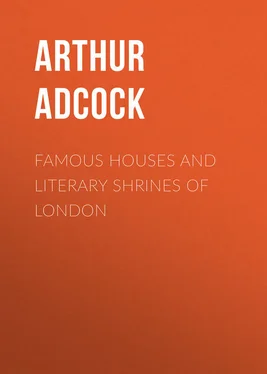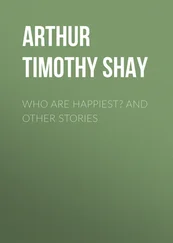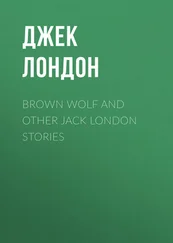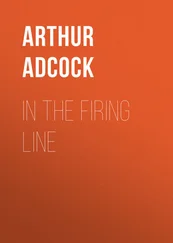Arthur Adcock - Famous Houses and Literary Shrines of London
Здесь есть возможность читать онлайн «Arthur Adcock - Famous Houses and Literary Shrines of London» — ознакомительный отрывок электронной книги совершенно бесплатно, а после прочтения отрывка купить полную версию. В некоторых случаях можно слушать аудио, скачать через торрент в формате fb2 и присутствует краткое содержание. ISBN: , Жанр: foreign_antique, foreign_prose, на английском языке. Описание произведения, (предисловие) а так же отзывы посетителей доступны на портале библиотеки ЛибКат.
- Название:Famous Houses and Literary Shrines of London
- Автор:
- Жанр:
- Год:неизвестен
- ISBN:http://www.gutenberg.org/ebooks/44269
- Рейтинг книги:3 / 5. Голосов: 1
-
Избранное:Добавить в избранное
- Отзывы:
-
Ваша оценка:
- 60
- 1
- 2
- 3
- 4
- 5
Famous Houses and Literary Shrines of London: краткое содержание, описание и аннотация
Предлагаем к чтению аннотацию, описание, краткое содержание или предисловие (зависит от того, что написал сам автор книги «Famous Houses and Literary Shrines of London»). Если вы не нашли необходимую информацию о книге — напишите в комментариях, мы постараемся отыскать её.
Famous Houses and Literary Shrines of London — читать онлайн ознакомительный отрывок
Ниже представлен текст книги, разбитый по страницам. Система сохранения места последней прочитанной страницы, позволяет с удобством читать онлайн бесплатно книгу «Famous Houses and Literary Shrines of London», без необходимости каждый раз заново искать на чём Вы остановились. Поставьте закладку, и сможете в любой момент перейти на страницу, на которой закончили чтение.
Интервал:
Закладка:
A. St. John Adcock
Famous Houses and Literary Shrines of London
CHAPTER I
SOME CELEBRATED COCKNEYS
You cannot stir the ground of London anywhere but straightway it flowers into romance. Read the inscriptions on the crumbling tombs of our early merchant princes and adventurers in some of the old City churches, and it glimmers upon you that if ever the history of London’s commercial rise and progress gets adequately written it will read like a series of stories out of the Arabian Nights . Think what dashing and magnificent figures, what tales of dark plottings, fierce warfare, and glorious heroisms must brighten and darken the pages of any political history of London; and even more glamorous, more intensely and humanly alive, would be a social history of London, beginning perhaps in those days of the fourteenth century when Langland was living in Cornhill and writing his Vision of Piers Plowman , or farther back still, in Richard the First’s time, when that fine spirit, the first of English demagogues, William Fitzosbert, was haranguing the folkmoot in St. Paul’s Churchyard, urging them to resist the tyrannic taxations of the Lord Mayor and his Court of wealthy Aldermen – a passion for justice that brought him into such danger that he and certain of his friends had to seek sanctuary, and barricaded themselves in Bow Church. The church was fired by order of a bishop who had no sympathy with reformers, and Fitzosbert and his friends, breaking out through the flames, were stabbed and struck down in Cheapside, hustled to the Tower, hastily tried and sentenced, dragged out by the heels through the streets, and hanged at Smithfield. I have always thought this would make a good, live starting-point, and had I but world enough and time I would sooner write that history than anything else.
No need to hunt after topics when you are writing about London; they come to you. The air is full of them. The very names of the streets are cabalistic words. Once you know London, myriads of great spirits may be called from the vasty deep by sight or sound of such names as Fleet Street, Strand, Whitehall, Drury Lane, The Temple, Newgate Street, Aldersgate, Lombard Street, Cloth Fair, Paternoster Row, Holborn, Bishopsgate, and a hundred others. You have only to walk into Whitefriars Street and see “Hanging-sword Alley” inscribed on the wall of a court at the top of a narrow flight of steps, and all Alsatia rises again around you, as Ilion rose like a mist to the music of Apollo’s playing. Loiter along Cornhill in the right mood and Thomas Archer’s house shall rebuild itself for you at the corner of Pope’s Head Alley, where he started the first English newspaper in 1603, and you will wonder why nobody writes a full history of London journalism.
As for literary London – every other street you traverse is haunted with memories of poets, novelists, and men of letters, and it is some of the obscurest of these associations that are the most curiously fascinating. I have a vivid, youthful remembrance of a tumble-down, red-tiled shop near the end of Leathersellers’ Buildings which I satisfied myself was the identical place in which Robert Bloomfield worked as a shoemaker’s assistant; Devereux Court still retains something of the Grecian Coffee-house that used to be frequented by Addison and Steele, but I knew the Court first, and am still drawn to it most, as the site of that vanished Tom’s Coffee-house where Akenside often spent his winter evenings; and if I had my choice of bringing visibly back out of nothingness one of the old Charing Cross houses, it would be the butcher’s shop that was kept by the uncle who adopted Prior in his boyhood.
Plenty of unpleasant things have been said about London, but never by her own children, or such children of her adoption as Johnson and Dickens. Says Hobbes, who was born at Malmesbury, “London has a great belly, but no palate,” and Bishop Stubbs (a native of Knaresborough) more recently described it as “always the purse, seldom the head, and never the heart of England.” Later still an eminent speaker, quoting this fantastic dictum of Stubbs’s, went a step further and informed his audience that “not many men eminent in literature have been born in London”; a statement so demonstrably inaccurate that one may safely undertake to show that at least as many men eminent in literature, to say nothing of art and science, have been born in London as in any other half-dozen towns of the kingdom put together.
To begin with, the morning star of our literature, Geoffrey Chaucer, was born in Thames Street, not far from the wharf where, after he was married and had leased a home for himself in Aldgate, he held office as a Comptroller of Customs, and the pen that was presently to write the Canterbury Tales “moved over bills of lading.” The “poets’ poet,” Spenser, was born in East Smithfield, by the Tower, and in his Prothalamion speaks of his birthplace affectionately as —
“Merry London, my most kindly nurse,
That to me gave this life’s first native source,
Though from another place I take my name.”
Ben Jonson was born in Hartshorn Lane, Charing Cross; four of his contemporary dramatists, Fletcher, Webster, Shirley and Middleton, were also Londoners by birth; Sir Thomas Browne, author of the Religio Medici , was born in the parish of St. Michael-le-Quern, in the very heart of the city; and Bread Street, Cheapside, is hallowed by the fact that Milton had his birth there.
Dr. Donne, the son of a London merchant, was also born within a stone’s throw of Cheapside; and his disciple, Cowley, came into the world in Fleet Street, at the corner of Chancery Lane. But Cowley was a renegade; he acquired an unnatural preference for the country, and not only held that “God the first garden made, and the first city Cain,” but ended a poem in praise of nature and a quiet life with —
“Methinks I see
The monster London laugh at me;
I should at thee too, foolish city,
If it were fit to laugh at misery;
But thy estate I pity.
Let but thy wicked men from out thee go,
And all the fools that crowd thee so,
Even thou, who dost thy millions boast,
A village less than Islington wilt grow,
A solitude almost.”
The daintiest of our lyrists, Herrick, was born over his father’s shop in Cheapside, and you may take it he was only playing with poetical fancies when, in some lines to his friend Endymion Porter, he praised the country with its “nut-brown mirth and russet wit,” and again when, in a set of verses on “The Country Life,” he assured his brother he was “thrice and above blest,” because he could —
“Leave the city, for exchange, to see
The country’s sweet simplicity.”
If you want to find him in earnest, turn to that enraptured outburst of his on “His Return to London” —
“Ravished in spirit I come, nay more I fly
To thee, blessed place of my nativity!..
O place! O people! manners framed to please
All nations, customs, kindreds, languages!
I am a free-born Roman; suffer then
That I amongst you live a citizen.
London my home is, though by hard fate sent
Into a long and irksome banishment;
Yet since called back, henceforward let me be,
O native country! repossessed by thee;
For rather than I’ll to the West return,
I’ll beg of thee first here to have mine urn.”
There speaks the true Cockney; he would sooner be dead in London than alive in the West of England. Even Lamb’s love of London was scarcely greater than that.
It was fitting that Pope, essentially a town poet, should be born in Lombard Street.
Читать дальшеИнтервал:
Закладка:
Похожие книги на «Famous Houses and Literary Shrines of London»
Представляем Вашему вниманию похожие книги на «Famous Houses and Literary Shrines of London» списком для выбора. Мы отобрали схожую по названию и смыслу литературу в надежде предоставить читателям больше вариантов отыскать новые, интересные, ещё непрочитанные произведения.
Обсуждение, отзывы о книге «Famous Houses and Literary Shrines of London» и просто собственные мнения читателей. Оставьте ваши комментарии, напишите, что Вы думаете о произведении, его смысле или главных героях. Укажите что конкретно понравилось, а что нет, и почему Вы так считаете.












